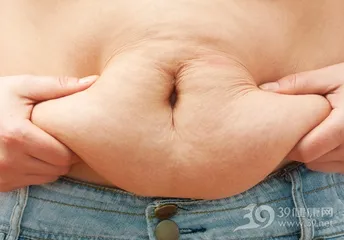Eating food finally found a reason not to lose weight

1. Slightly fat
Most modern people regard thinness as their beauty, and fat people have become unpopular. From a medical perspective, being too fat does increase the risk of multiple diseases, but excessive pursuit of bone feeling is also a misunderstanding. A little fatter is a good and healthy figure, and people of any age should not lose too much weight.
Body mass index (BMI) is an internationally common indicator to measure body fat and thinness. BMI= weight kilograms ÷ height square of meters. A study published in the New England Journal of Medicine found that East Asian populations such as China, Japan, and South Korea control their BMI at 22.6 to 27.4 and have the lowest risk of death. People above or below this range have an increased risk of death from cancer, cardiovascular and cerebrovascular diseases or other diseases. A 40-year survey of 6 million people in the United States also found that people who exceed the standard weight by 10% to 15% have the longest life expectancy and the lowest mortality rate.
The advantage of slightly overweight is more prominent among middle-aged and elderly people. Japanese studies have shown that people who are slightly overweight at the age of 40 live longer and can live 6 to 7 years longer than those who are relatively thin. The reason is that a little more subcutaneous fat is conducive to storing energy, resisting cold, improving immunity, and protecting important organs, thereby delaying aging. In life, many elderly people dare not eat many foods because they are afraid of developing chronic diseases or exacerbating their conditions. They blindly control the intake. The result is often counterproductive, resulting in insufficient energy and protein intake, iron deficiency anemia, decreased immunity, and increased risk of disease susceptibility.
How to control weight through diet? Elderly people who are too thin can gain weight moderately through the following methods: add 2 to 3 simple meals in addition to three meals a day; eat snacks with higher energy such as milk and nuts; exercise appropriately to increase appetite; regulate mood and ensure sleep. Enough time. Middle-aged and elderly people who are too obese should also lose weight. The method is: eat more low-energy foods such as fruits and vegetables, and konjac; eat less high-energy foods such as candies and sugary drinks; drink more porridge such as mung beans and corn; reduce the amount of fat meat, internal organs and other animal fat intake; insist on exercising every day.
2. Slightly cool
Temperature and health are closely related, especially room temperature and diet temperature. Studies have shown that the optimal environmental temperature is 18 ° C to 20 ° C. At this time, the human body feels slightly cold, but the body's immunity can be maximized, the disease resistance is stronger, and the quality of sleep is higher. For example, my country's famous Changshou Township, Bama Yao Autonomous County, Guangxi, has an average annual temperature of around 20℃. It should be reminded that people should not use too much external means to interfere with room temperature and ignore their own body temperature regulation system. For example, in winter, the room temperature is set too high, and you can even wear short sleeves and eat popsicles; in summer, the temperature is adjusted too low, and you have to cover yourself with quilts when you sleep at night. The room temperature should be 16℃ to 20℃ in winter and 24℃ to 26℃ in summer.
Diet also emphasizes low temperatures. On the one hand, in terms of cooking methods, low-temperature cooking such as cold dressing, steaming, and boiling should be the main focus to preserve food nutrition to the greatest extent; high-temperature cooking such as frying and frying will not only cause a large loss of vitamins and other nutrients, but may also produce carcinogens. On the other hand, food should be eaten in a warm and slightly cool state. Eating hot food for a long time may burn the esophageal mucosa and induce esophageal cancer.
3. Slightly hungry
Long-term insistence on eating until you are full can not only ensure nutrient intake, but also help control weight and keep your mind clear. But for many people, it is becoming increasingly difficult to stay full.
Seven-point fullness is a feeling of slight hunger that seems to be full but not full, and still has an unfinished appetite for food. My stomach doesn't feel full, my enthusiasm for food has dropped, and my eating rate has slowed down, but I still habitually want to eat, but if I remove the food, I will soon forget to eat. Generally speaking, under the conditions of relatively regular and fixed meal times, if you eat 70 points full this meal, you will not feel obvious hunger before the next meal. Otherwise, it means that you have not eaten 70 points and you can add more.
The following three methods are conducive to grasping the feeling of slightly hungry: First, concentrate on eating, without chatting while eating or watching TV while eating; Second, chew slowly and feel the changes in your enthusiasm for food and the gradual fullness of your stomach; Third, foods such as less refined and more coarse grains that require a few more chewing times to swallow can slow down your eating speed and help you feel full. Food that is white, soft, oily and less fiber will make you eat too much without realizing it.
4. Slightly sweating
The amount of sweat during exercise is often used by people to judge the effectiveness of exercise. However, for middle-aged and elderly people, sweating profusely is not the best exercise state, and may lead to collapse, falls, and induce asthma, chest tightness, abdominal pain, etc. Therefore, middle-aged and elderly people should follow the principle of moderation, and it is advisable to sweat slightly, feel a little tired, and feel comfortable.
Adhere to at least 30 minutes of outdoor activity every day, preferably 1 hour; control the maximum heart rate within the range of "170 minus your age"; walking, swimming, doing Tai Chi, etc. are all good choices; early morning is not the best exercise time, recommended by the World Health Organization, it is suitable for exercise from 9:00 a.m. to 10:00 a.m. and from 16:00 p.m. to 20 p.m.
5. Micro stupidity
Longevity is inseparable from an optimistic and open-minded mentality, which in turn comes from a philosophy of life that is indifferent to fame and fortune and rare and confused. As a century-old Red Army man said: "If you don't seek fame, profit, worry, or anger, you can live to an old age." On the contrary, people who are meticulous and take everything seriously will often induce various diseases due to inner anger and depression, such as high blood pressure, gastric ulcers, neurasthenia, etc., and ultimately lose their health.
To maintain health, we must first cultivate our hearts. Be a little confused and more elegant in life, be able to take it and let it go, and learn to be slightly foolish and laugh at ourselves. This is the great wisdom. Making more friends, cultivating hobbies, reading diligently, and exercising more are all beneficial to people's mental health.

[Benefit: Come and see how you should lose weight?]
Want to lose weight healthily? Want to know what is the right way to lose weight for you?